#roman
Explore tagged Tumblr posts
Text



Ancient Roman mosaics in Vibo Valentia, Calabria, Italy
Follow us on @calabria_mediterranea
#vibo valentia#calabria#italy#italia#roman#mosaics#history#southern italy#south italy#mediterranean#italian#ancient#ancient art#art#ancient history
215 notes
·
View notes
Text
"I mean look at you. You've got everyone here drooling," Samantha insisted with a gesture towards him. "And you are more than aware of that," she added playfully. "I have never held that sort of power in a room of so many people."

"Coming from someone who you wouldn't expect it from?" Roman had to laugh a little at that. "I don't know what impression I am giving off if you wouldn't expect it from me." He admitted with another chuckle because it caught him a little off guard to be called out like, though he could tell she hadn't meant it to be that way.

27 notes
·
View notes
Text
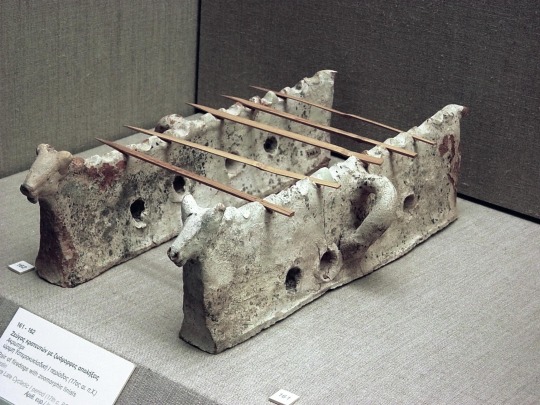
Stone cooking supports used to grill skewers of meat by Minoans on Santorini, circa 3600 years old. The line of holes in the base supplied coals with oxygen. Many consider modern "souvlaki" street kebabs a direct descendant of this portable food system. Museum of Prehistoric Thera, Greece. More: https://thetravelbible.com/museum-of-artifacts/
18K notes
·
View notes
Text


adam and eve apple. quote translates to “I am your half”
#arqueologia#archaeologylovers#ancientcivilization#museum#art#history#photography#archaeological#antiquities#arte#archaeologylife#archeology#ancient#archaeologist#archaeology#antiquity#artifacts#archeologie#historical#culture#sculpture#artlovers#ancientruins#roman#ologie#mythology#photooftheday#archeotravel#arch#archeologicalsite
7K notes
·
View notes
Text
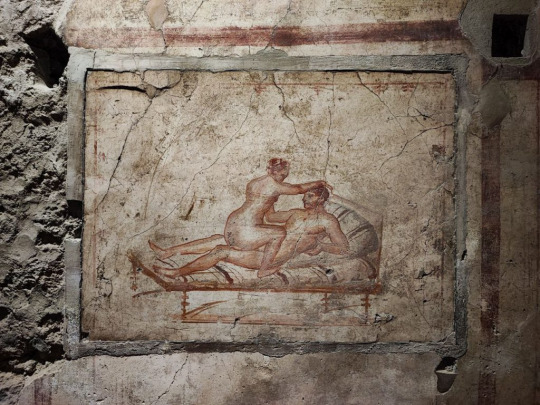
Erotic fresco at the House of the Vettii in Pompeii.
4K notes
·
View notes
Text
*cracks knuckles* I’ve waited since 2017 for this moment...
• They have a tradition of eating Bagels every anniversary due to their first date
• Favorite movie they love watching together is The Princess and The Frog
• Whenever Patt’s upset Ro likes to cuddle him and summon Puppies to cheer him up
• Ro loves taking Patt to flowery fields in the Imagination (Patt makes them both flower crowns everytime)
• Patt saves every plushie Ro has given him and sleeps with them and kisses them every night
• Ro can and will make it everyone's problem if he's not paired with Patt in FamILY game night
• They both hype each other up everytime they get a new outfit or for literally anything good that’s happened to them (They are each others number 1 supporter)
• Patt never misses any of Ro’s theater performances and always sits front row
• Everytime Ro goes on a quest he gives Patt one his sweaters/hoodies to wear to comfort him when he’s away
• Ro taught Patt how to waltz and in return Patt taught Ro how to rollerskate/rollerblade
• They feed each other and or share their food on picnic dates
• Ro S L I C E S anything with his Katana that tries to hurt or scare Patt (He absolutely ruined Vee's curtains because of it at one point)
• Whenever Patt’s insecure about his Froggy traits showing Ro peppers every Green spot on his skin with kisses and reminds him how beautiful he is
• Everytime Patt runs at Ro at full speed and hugs him the Prince lifts him up and spins him loving the sound of his Beloved’s giggles
• They both love creating/making things together whether it be for the other Sides, Character!Thomas, or for each other <3
royality hcs anyone? royality shippers ARE YOU GUYS ALIVE
#i'm gonna stop myself there before this list gets any longer i just L O V E them S O fucking much XD <3#my day one ship as well as one of my comfort ships fr <3#royality#roman#patton#roman sanders#patton sanders
21 notes
·
View notes
Text

Roman bow. 1st Century BC
2K notes
·
View notes
Text
On this day thousands of years ago Julius Ceaser was presented with a gift of fifty knives which became the origin of the concept of a knife set.
2K notes
·
View notes
Text
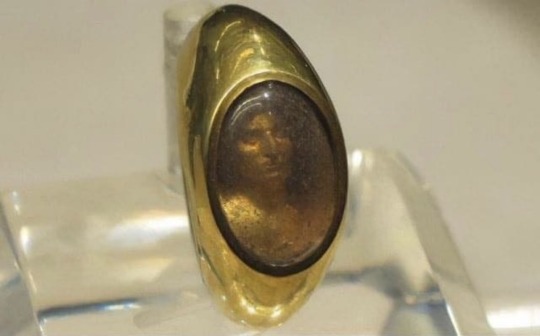
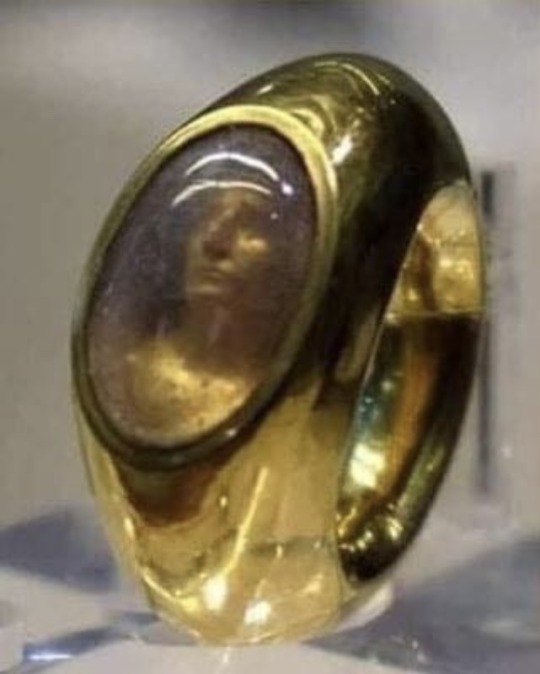
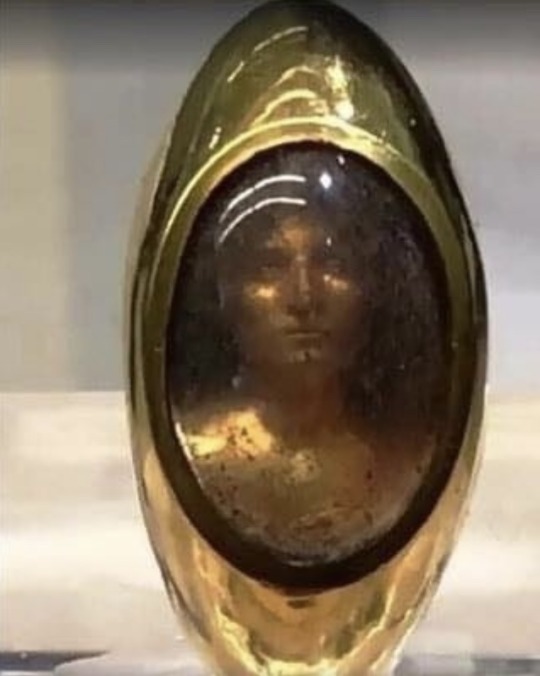
A Roman "hologram" effect ring found in the grave of 1st century AD noblewoman, Aebutia Quarta.
The ring is thought to depict her son, Titus Carvilius Gemello, who passed away at age of 18. Found at the Grottaferrata necropolis close to Rome.
8K notes
·
View notes
Text
Child's Sock from Egypt, c.250-350 CE: this colorful sock is nearly 1,700 years old

This sock was discovered during excavations in the ancient city of Oxyrhynchus. It was likely created for a child during the late Roman period, c.250-350 CE.
Similar-looking socks from late antiquity and the early Byzantine period have also been found at several other sites throughout Egypt; these socks often have colorful, striped patterns with divided toes, and they were crafted out of wool using a technique known as nålbinding.

Above: a similar child's sock from Antinoöpolis, in Egypt, c.250-350 CE
The sock depicted above was created during the same period, and it was found in a midden heap (an ancient rubbish pit) in the city of Antinoöpolis. A multispectral imaging analysis of this sock yielded some interesting results back in 2018, as this article explains:
... analysis revealed that the sock contained seven hues of wool yarn woven together in a meticulous, stripy pattern. Just three natural, plant-based dyes—madder roots for red, woad leaves for blue and weld flowers for yellow—were used to create the different color combinations featured on the sock, according to Joanne Dyer, lead author of the study.
In the paper, she and her co-authors explain that the imaging technique also revealed how the colors were mixed to create hues of green, purple and orange: In some cases, fibers of different colors were spun together; in others, individual yarns went through multiple dye baths.
Such intricacy is pretty impressive, considering that the ancient sock is both “tiny” and “fragile."
Given its size and orientation, the researchers believe it may have been worn on a child’s left foot.

Above: child's sock from Al Fayyum, Egypt, c.300-500 CE
The ancient Egyptians employed a single-needle looping technique, often referred to as nålbindning, to create their socks. Notably, the approach could be used to separate the big toe and four other toes in the sock—which just may have given life to the ever-controversial socks-and-sandals trend.
Sources & More Info:
Manchester Museum: Child's Sock from Oxyrhynchus
British Museum: Sock from Antinoupolis
Royal Ontario Museum: Sock from Al Fayyum
Smithsonian Magazine: 1,700-Year-Old Sock Spins Yarn About Ancient Egyptian Fashion
The Guardian: Imaging Tool Unravels Secrets of Child's Sock from Ancient Egypt
PLOS ONE Journal: A Multispectral Imaging Approach Integrated into the Study of Late Antique Textiles from Egypt
National Museums Scotland: The Lost Sock
#archaeology#artifact#history#anthropology#child's sock#ancient textiles#ancient egypt#roman egypt#fabric arts#knitting#fashion#naalebinding#art#classical antiquity#children in archaeology#natural dyes#wool#yarn#ancient clothing#children#roman#sewing#egyptology#cute little stripy socks
2K notes
·
View notes
Text
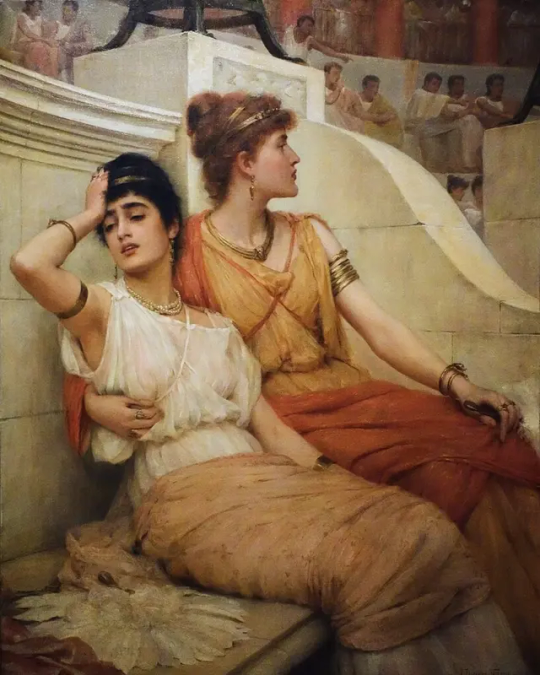
"A Roman Holiday" by Frank Markham Skipworth (1889)
#Frank Markham Skipworth#oil on canvas#19th century artist#19th century painting#art#painting#traditional art#classical art#oil painting#paintings#inspiration#art inspiration#19th century art#19th century#wlw art#wlw coded#wlw in art#wlw in classical art#wlw#wlw classical art#sapphic art#sapphic classical art#sapphics in art#1800s#1800s art#late 1800s#a roman holiday#roman#arena#women in paintings
2K notes
·
View notes
Text
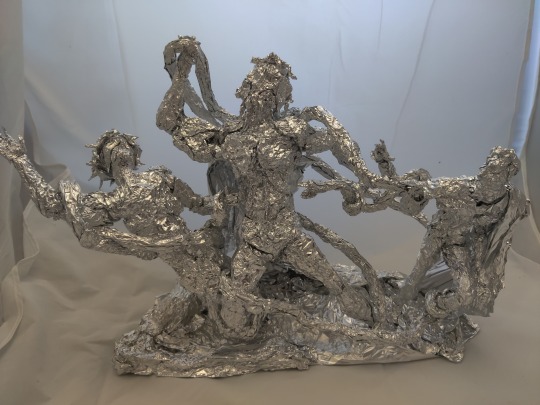
Laocoon and His Sons - Aluminum Foil Sculpture
#laocoon and his sons#greek#greek sculpture#greek art#roman#snake#hellenistic#hellenistic art#foil#sculpture#fanart
6K notes
·
View notes
Text

~ Helmet of Gladiator.
Date: A.D. 1st century
Medium: Bronze
#ancient#ancient art#history#museum#archeology#ancient history#archaeology#roman#ancient roman#ancient rome#Gladiator#armor#helmet#bronze#1st century
2K notes
·
View notes
Text




Forum, Rome -- September 19th, 2024
Etsy
2K notes
·
View notes
Text
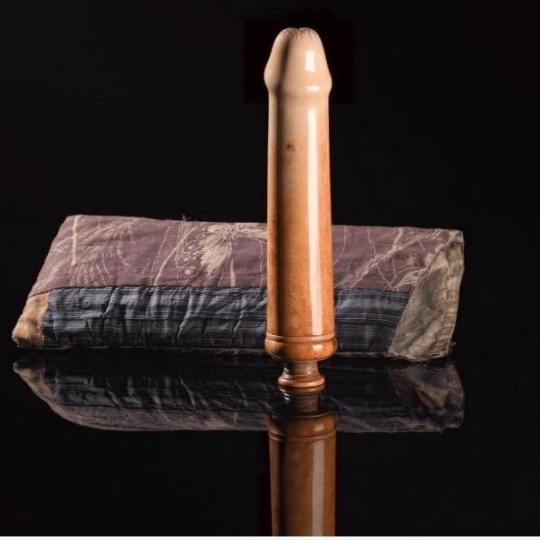
An 18th century CE ivory dildo complete with contrivance for simulating ejaculation and its own discreet cloth bag. The didlo was hidden in the seat of a Louis XV armchair found in a convent near Paris. Now housed at the Science Museum in London
More: https://thetravelbible.com/mysterious-archaeological-finds/
15K notes
·
View notes